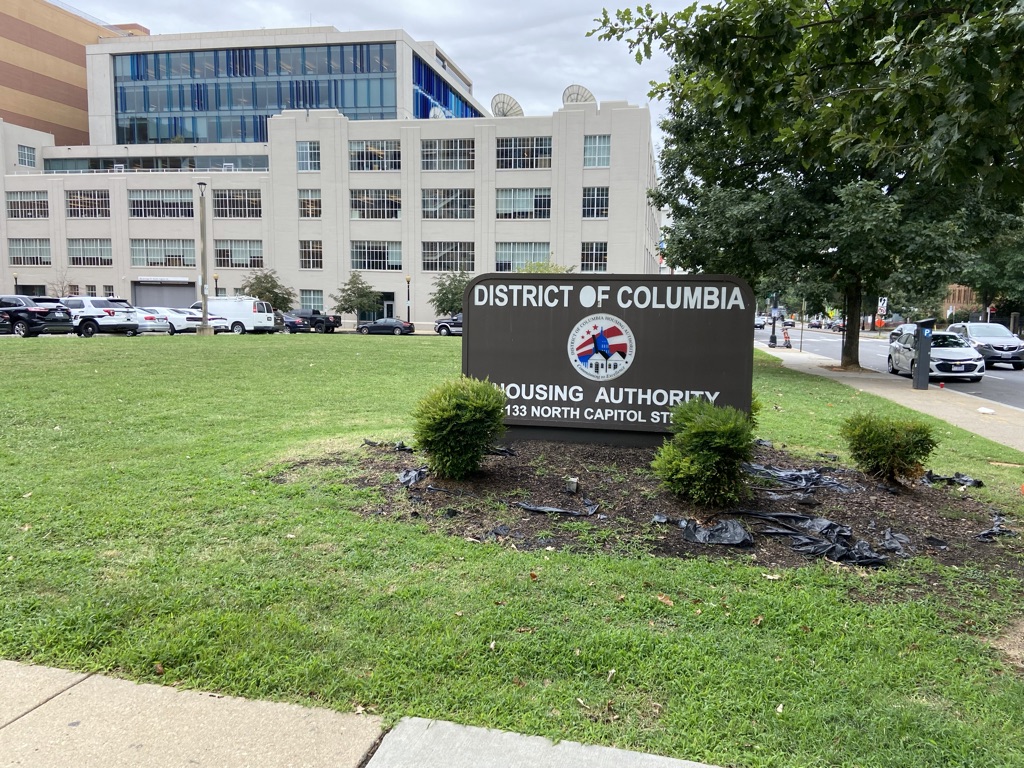D.C.’s beleaguered housing agency is taking steps toward overhauling its contracting policy, following a U.S. Department of Housing and Urban Development (HUD) review published last fall that revealed many “systemic problems” with the agency’s administration.
At a Feb. 8 meeting, the recently established board that oversees the D.C. Housing Authority (DCHA) voted to approve a draft version of a procurement policy that aims to provide greater oversight of the agency’s contracting process.
The policy will be published in the D.C. Register. The public will have 30 days to comment by emailing [email protected].
“We look forward to continued conversation in the next few months to ensure we restore the reputation of DCHA and use the board oversight authority to hold the agency accountable for correcting the many deficiencies found in the HUD review,” Raymond Skinner, chair of the board, said in a press release. The D.C. Council established DCHA’s current board late last year, replacing a past body many saw as dysfunctional.
In its inspection, HUD found the housing agency was not using any board-approved guidelines when contracting with outside companies. The lack of clear procedures led to inconsistencies and violations of federal contracting rules, according to the report. Moreover, an internal DCHA audit found the agency spent $1 million on contracts illegally awarded without a bidding process in 2019, and was overcharged $2 million on another contract due to insufficient oversight.
The contracting policy approved last week at the Stabilization and Reform Board’s second meeting is similar to an unofficial one DCHA has used since 2017, with certain changes to ensure it follows federal and local law. Aspects that haven’t changed include requirements that DCHA must use a fair and competitive process when awarding contracts and that the board must approve any contracts over $250,000.
The draft policy also includes a new section encouraging DCHA to contract when feasible with businesses owned by public housing residents — a practice residents have long asked the agency to prioritize.
While the board passed the policy with little debate, some members were skeptical any official guidelines will fix the enforcement issues outlined in the internal audit.
“It is not clear to me that this procurement policy would have prevented those problems,” board member Christopher Murphy said at the meeting.
Several DCHA residents addressed other concerns with the housing authority during a public comment period, calling on the agency to address emergency repairs in a timely manner and to dismiss employees who are disrespectful to residents. Kenneth Council asked the board to focus on the well-being of residents and not to act as a rubber stamp, a fear many residents have expressed.
“The agency is in 30 years of mismanagement because of DCHA staff, and they do not care,” said Council, who made similar comments when he was an elected representative of DCHA residents on the agency’s past board.
DCHA Executive Director Brenda Donald also updated the board on the agency’s progress in resolving another problem identified in the HUD report: A significant percentage of its housing units are vacant and in disrepair.
Last month, 225 people from the public housing waitlist attended DCHA’s second mass leasing event to fill vacant units, Donald said. The agency is now offering public housing units to people who originally applied in 2012, she added. Closed to new applicants since 2013, the list was 24,000 people long as of last June and stretched back to 2004.
DCHA is also beginning its second maintenance surge in as many years. The agency has inspected units at two properties thus far and plans to examine every unit by May.
At last week’s meeting, the board also approved contracts for a project management system and audit services. Members also formally accepted a HUD Choice Neighborhoods Planning Grant for $500,000, which the agency plans to use to develop a revitalization plan for the Lincoln Heights and Richardson Dwellings area of Ward 7’s Deanwood neighborhood.
DCHA’s board will meet next on March 8 at 1 p.m.
This article was co-published with The DC Line.
Annemarie Cuccia covers D.C. government and public affairs through a partnership between Street Sense Media and The DC Line. This joint position was made possible by The Nash Foundation and individual contributors.








